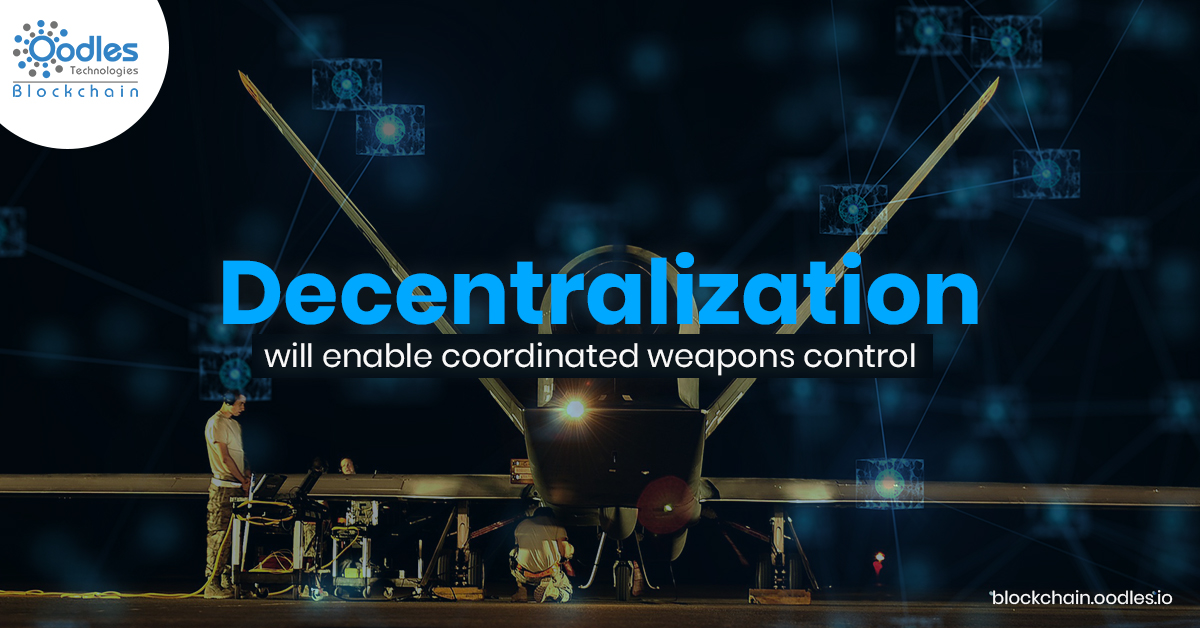-
Decentralized Smart Contract technology is emerging as an undertone of next-gen IT infrastructure. After banking and finance sector leveraging distributed ledgers to secure operations, now, other sectors are aggressive to implement this technology. One such vertical is defense and military applications. Smart contract technology in defense will revolutionize the sector. Top agencies including DARPA, and US Navy have caught the bandwagon. Not only in the US, this technology is also gaining global grounds. NATO is also ready to invest on it. Defense and military sector has integrated IT as a salient tool with advances in drones, smart weapon systems, and active monitoring.
Smart Contract technologies like blockchain impacted several aspects of military and defense. Real-time data collection using drones, decentralization of weapon control, military supply chain management can become highly optimized and effective using blockchain.
Combining AI & Blockchain
In the current landscape of defense technology, AI is gaining grounds. However, a rational use of technology in military barred AI from gaining more grounds. Google abandoning project MAVEN is a good stride for humanity. Distributed ledger based technology, on the other hand, is gaining strong pertinence for not only technical advantages but also for the reason that dropped MAVEN.
However, AI and blockchain-like technology can create unique solutions. For instance, AI and Blockchain powered drones has the potential to solve data recovery after destruction. As drones are employed in highly critical areas, they are destroyed often while on an operation. Connecting AI-powered drones with blockchain based network will enable real-time data collection and save the record, eradicating any possibility of data loss.
Decentralization will enable coordinated weapons control
Weapon systems are massive and they need a strong coordination. Form autonomous drones to battleships, from a wearable gadget to high-tech robotic weapons, all require a reliable real-time coordination. Such network requires stringent security and unbreakable protocols to run. Distributed ledger based technology and smart-contracts will create an immutable chain of data, which cannot be hacked. Individual players can connect to the same grid to work on real time coordination.
Smart contract technology will strengthen real-time military supply-chain management
Blockchain-based smart contract technology has the potential to create a real-time supply chain in weapon administration. Blockchain is gaining a rapid adoption in governance, which can replicate in supply-chain management in the military as well. Distributed ledgers can let all roles in the chain to implement their parts in tandem with other stakeholders in real-time. Such chain will effectively work during an emergency period. Such decentralized networks will connect each weapon on the grid to administrations. This will augment the process of servicing and maintenance of high-tech weapons. Suppliers in the chain will know the requirement to replace any damaged part or machine in the weaponry on real-time. Thus, military logistics, procurement, and supply operations will enhance using decentralized applications.
Decentralized ledgers and smart contracts are emerging technologies. Blockchain-based technology has the potential to create innumerable innovative applications for defense, military, and security. SaaS Development, web-based applications are now pertinent in this industry. These systems will enhance dynamically with decentralization. Distributed ledgers are foolproof, immutable and uncollapsible, which make them apposite for military applications.

Our Offices
INDIA
Emaar Digital Greens, Sector 61,
Gurugram, Haryana
122011.
Welldone Tech Park,
Sector 48, Sohna road,
Gurugram, Haryana
122018.













